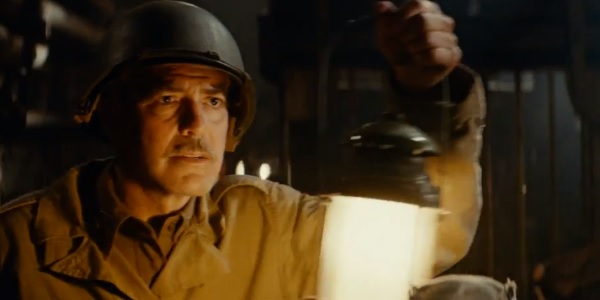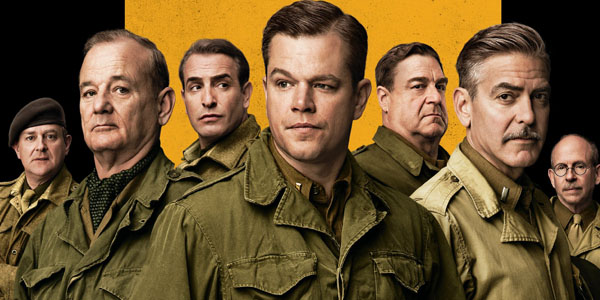The Monuments Men Review

rating: 2
By now, everyone knows who George Clooney is as an actor. He's witty, charming, charismatic; he has a very strong on-screen presence. We all know what to expect from a Clooney performance nowadays, which is why it's exciting whenever he takes on more challenging film roles. Whether or not he takes chances, Clooney is always worth watching as an actor as the confidence that he exudes in front of the camera cannot be denied. As a director, however, George Clooney is much less sure of himself and it's a problem that rears its ugly head in his latest film, The Monuments Men.The Monuments Men is the fifth film directed by George Clooney. Even after five films, Clooney still seems to lack a real sense of style. Now, he has made good films in the past, such as Good Night and Good Luck and The Ides of March. Good Night pays a remarkable amount of attention to historical detail and features a captivating performance from David Strathairn. The Ides of March is also filled with solid performances and tells a very compelling story. Both films are involving enough that it manages to successfully mask Clooney's blandness. The technical choices he makes as a filmmaker feel decidedly un-cinematic, often moving from master shot to master shot with little camera movement in between. If you were to ask yourself, what's the most memorable shot in a George Clooney-directed movie, you would be hard-pressed to come up with an answer. This is why, even with Academy Award-winning cinematographer Robert Elswit by his side, Good Night and Good Luck winds up feeling like a well-made TV movie.
This is not to say that George Clooney is required to embellish more, as a director, in order to make a great movie. If he wants to make the screenplay and the performances speak for themselves, he has every right to do that. But, compared to Good Night and Ides of March, The Monuments Men is much more ambitious in its scope. This is a comedy/drama that spans multiple years, has many different locations, and features an ensemble cast. There are so many different elements to this movie and Clooney clearly has trouble balancing them all. The story moves from plot point to plot point with little regard for momentum or character development. This is a cast that features Clooney, Matt Damon, Bill Murray, John Goodman, Jean Dujardin, Bob Balaban, Cate Blanchett, and Hugh Bonneville---so many wonderful actors working together with a script that does not give them much to do.
The Monuments Men definitely has a fascinating story, overall. The fact that there actually were a couple of guys who went into enemy territory and wound up saving millions of pieces of art is quite remarkable. But the script, written by Clooney and Grant Heslov, does not do this story proper justice. The movie feels too much like a procedural, jumping from various points throughout World War II without any sense of cohesion in between. It seems that Clooney and Heslov wanted to go the "Argo route" in their approach to this material: taking a fairly serious story that has great historical significance and trying to add some humor into the mix. Unfortunately, they were unable to pull it off. Whereas Argo's humorous moments serve to complement the dramatic structure and tone of the film, The Monuments Men literally moves back and forth from "dramatic scene" to "comedic scene" which means the tone is often all over the place and the comedic elements feel forced. An uneven tone is largely the fault of the director and it's interesting to me that Clooney had such difficulty with this when Ben Affleck managed to make the comedy in Argo feel much more seamless (Affleck has made fewer films).

